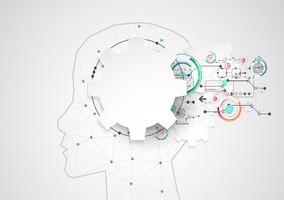Members of the British public have mixed views toward charities using artificial intelligence (AI), according to a new report.
Charities Aid Foundation (CAF) asked 1,031 people in the UK, nationally representative by age, gender and region, on their views on charities using AI.
Many were in favour of charities using AI, with 23% saying that the opportunities exceeded the risks and another 7% stating the opportunities far outweighed the risks.
However, 17% said the risks of AI were greater than the opportunities and another 8% reported the risks far outweighed the opportunities.
A further 37% said they thought the opportunities and risks were equal, and 8% reported they did not understand AI enough to have a clear view.
Respondents said AI could enable “faster disaster response” and “helping more people” but they were less interested in more internal benefits like measuring success or managing volunteers.
Meanwhile, risks identified by those surveyed included charities “reducing their workforce” and a potential “data breach”.
The report added that charities needed to communicate carefully as 19% of people would pay “not much” or “no” attention to what a charity they supported said publicly about how it was using AI.
‘Remain alert to the risks’
Neil Heslop, chief executive at CAF, said: “AI must not be the privilege of the few. We must work together with the technology industry to ensure it is accessible for large and small charities.
“Digital advances have great potential to support charities to further their missions and accelerate social progress. As a starting point, AI could help target disaster relief more effectively, decrease the time spent on administrative tasks and improve operations.
“Charities need to also remain alert to the risks, stay close to the human essence of their cause and communicate clearly with donors to further social impact.”
Global findings
As well as people from the UK, CAF asked more than 6,000 people across 10 countries about their views on charities using AI.
Some 8% reported that the risks far outweigh the opportunities, while 12% said the opportunities far outweigh the risks.
Over a third, 34% said the opportunities and risks were equal, while 14 % said the risks outweigh opportunities, and 25% said the opportunities outweigh the risks.
Meanwhile, 7% reported that they did not understand AI enough to have a clear view.
The report also finds the more generous donors are more in favour of AI, with high donors having a net positivity score of +30% and non donors having one of +5%.
High-income countries were more sceptical than low and middle-income countries. Indeed, +25% is the net positivity towards AI score in low and middle-income countries, compared to +8% in high-income countries.
Kenya was the country most focused on the opportunities, at +44%, compared to Australia at -4%.
All age groups had a net positive outlook of +12% or more, apart from 55 to 64-year-olds (+6%).
Related Articles












